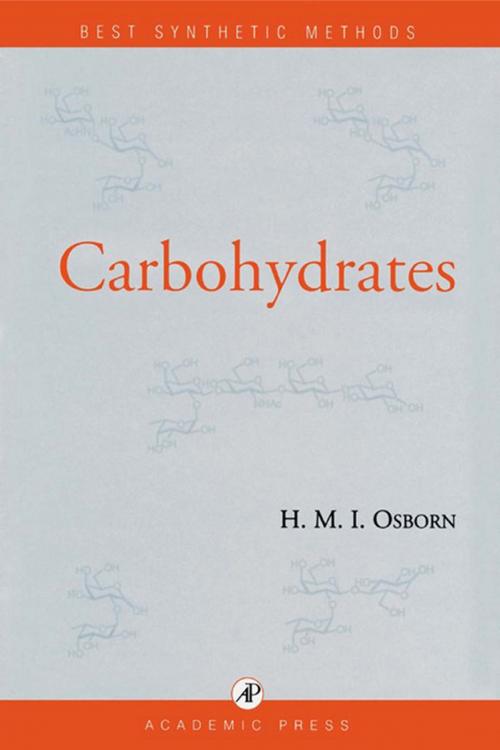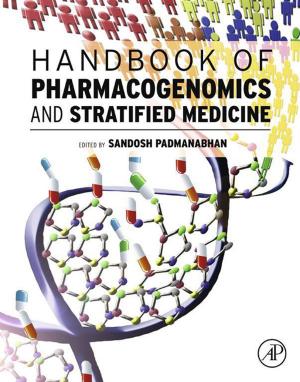Carbohydrates
Nonfiction, Science & Nature, Science, Chemistry, Organic, Biological Sciences, Biochemistry| Author: | ISBN: | 9780080528526 | |
| Publisher: | Elsevier Science | Publication: | April 22, 2003 |
| Imprint: | Academic Press | Language: | English |
| Author: | |
| ISBN: | 9780080528526 |
| Publisher: | Elsevier Science |
| Publication: | April 22, 2003 |
| Imprint: | Academic Press |
| Language: | English |
There is a vast and often bewildering array of synthetic methods and reagents available to organic chemists today. The Best Synthetic Methods series allows the practising synthetic chemist to choose between all the alternatives and assess their real advantages and limitations.
Each chapter in Carbohydrates details a particular theme associated with carbohydrate synthesis. A brief review of the subject area is provided, but the emphasis in all cases is on describing efficient practical methods to effect the transformations described.
In order for the roles of carbohydrates to be thoroughly analysed and assessed, glycobiologists require access to defined target carbohydrates in useful quantities. Thus carbohydrates and glycoconjugates are now recognized as important targets for total synthesis programmes and it is essential to develop efficient regio- and stereoselective methods for the synthesis of carbohydrates. Whilst carbohydrates can sometimes be isolated from natural sources, synthetic strategies often offer the advantage of allowing access to larger quantities of material as well as entry to analogues of the natural carbohydrates.
- The latest volume in the long standing Best Synthetic Methods series
- Clear chapter by chapter breakdown of carbohydrate synthesis themes with examples of good practical methods for common carbohydrate syntheses
There is a vast and often bewildering array of synthetic methods and reagents available to organic chemists today. The Best Synthetic Methods series allows the practising synthetic chemist to choose between all the alternatives and assess their real advantages and limitations.
Each chapter in Carbohydrates details a particular theme associated with carbohydrate synthesis. A brief review of the subject area is provided, but the emphasis in all cases is on describing efficient practical methods to effect the transformations described.
In order for the roles of carbohydrates to be thoroughly analysed and assessed, glycobiologists require access to defined target carbohydrates in useful quantities. Thus carbohydrates and glycoconjugates are now recognized as important targets for total synthesis programmes and it is essential to develop efficient regio- and stereoselective methods for the synthesis of carbohydrates. Whilst carbohydrates can sometimes be isolated from natural sources, synthetic strategies often offer the advantage of allowing access to larger quantities of material as well as entry to analogues of the natural carbohydrates.
- The latest volume in the long standing Best Synthetic Methods series
- Clear chapter by chapter breakdown of carbohydrate synthesis themes with examples of good practical methods for common carbohydrate syntheses















